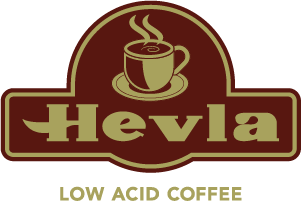How Low Acid Coffee Helps People with Heartburn, GERD and Acid Reflux
If you read up on coffee chemistry, the compounds found in coffee alone will easily tell you of its acidic nature. 97% of people who suffer from gastric problems are either avid coffee drinkers or people who socially drink it and would like to continue drinking it as part of cultural affluence. This is where manufacturers of low-acid coffee come in. With the demand for gourmet taste in coffee and an alternative means of enjoying it without contributing to the symptoms of GERD, the demand for low acid coffee has been on an all-time high. Helva Low Acid Coffee, for example, has a special all-natural steaming process that removes 70+ harmful irritants from coffee beans, without compromising on taste.
Back in the old days, being diagnosed with something like GERD would mean the end of coffee enjoyment, among other foods that are forbidden. This is basically done to minimize the onset of heartburn which is a symptom of the disease. There is a growing community that yearns for coffee alternatives, the kind of coffee that can be enjoyed by people who suffer from hyper sensitivity to acids in coffee and those who suffer from gastric disease. Hevla Low Acid Coffee is a healthier means to enjoy coffee and is non-restricting even for those who have been contraindicated for the beverage.
Do not make the mistake of assuming that coffee causes gastric disease in general. There is no scientific study that has stated that coffee in general is a causative agent for GERD and other gastric diseases, but people with existing conditions, or those with a hypersensitivity to elevated acid levels in the stomach should do well to consume low acid coffee products.
Low acid coffee is definitely helpful for people who have become to hypersensitivity to elevated acid levels in the stomach. Coffee has compounds derived from its acid components that stimulate the production of pepsin and hydrochloric acid in the glands of the stomach, which in turn creates the onset of acid regurgitation. Studies have shown that low acid coffee is rich in another derivative compound which does the opposite for the stomach glands; it actually suppresses the stimulation of acid production.
The acidity in coffee has been proven as an aggravating component in patients who have been diagnosed with gastric conditions such as GERD when it comes to the symptoms, such as heartburn. Physicians will point out however that coffee in itself is not the cause of GERD and despite several medical breakthroughs in its management and treatment, there is still no single concrete pathophysiological cause associated with the disease. Coffee is just one of the many foods that are restricted for someone who has GERD. Chocolate, high protein foods such as meats and legumes are also forbidden as well as citrus and acidic products.
For coffee drinkers who may not have GERD, but who have developed a mild acid reflux problem, drinking coffee can end up a painful experience, as most with hyperacidity will complain of seething pain experienced during a hyper acidic episode when consuming coffee. Here is where low acid coffee can prove to be a valuable commodity, as it will allow people with mild cases of gastric issues to continue to enjoy their favorite beverage, without consequence or promoting the development of the disease.
Having low acid coffee gives people who are “acidity conscious” the best of both worlds by giving them the privilege of enjoying coffee and its stimulus effects. For GERD patients, having the best of both worlds’ means that low acid coffee can help balance the PH of the stomach by assisting in its alkalization. When you have acid reflux, the objective is to keep your gastric acid level to a minimum and avoid additional corrosive stimulus that could increase the PH level in the stomach.

